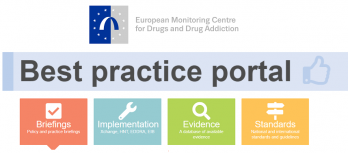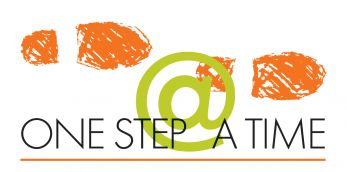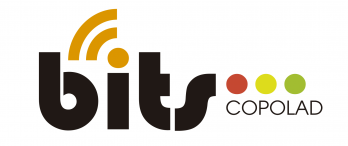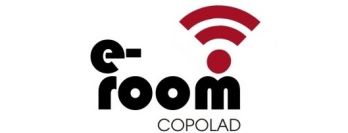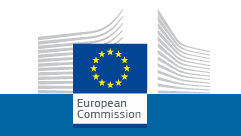EU-CELAC Bi-regional meeting for the exchange best practices of COPOLAD in drug demand reduction marks a milestone in Panama
ReturnPublished on 27/11/19
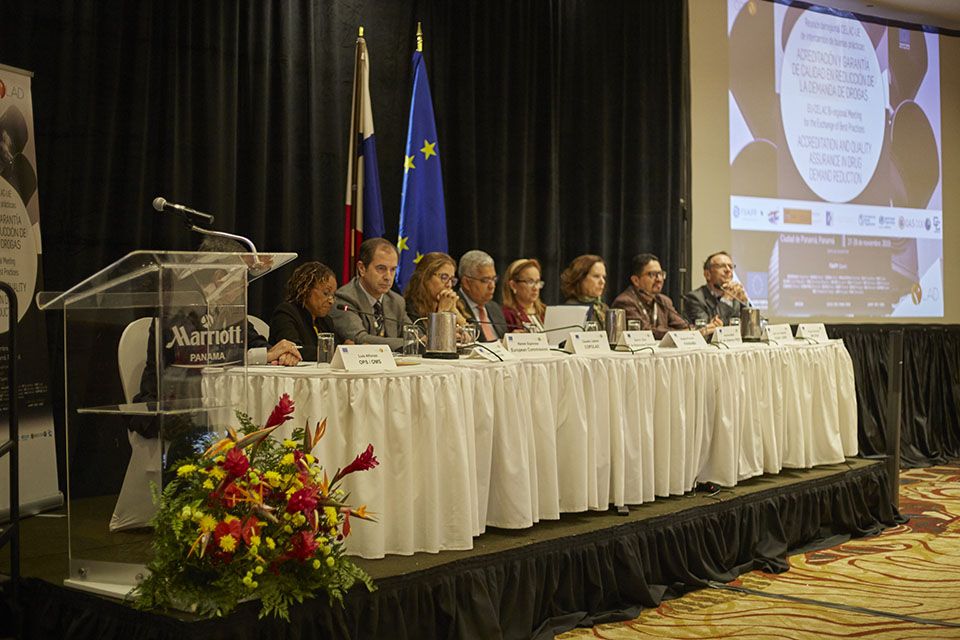
Panama City, November 27, 2019. The International and Ibero-American Foundation for Public Administration and Policy (FIIAPP) is organizing in Panama City the 3rd Bi-regional Meeting for the exchange of best practices among Latin American-Caribbean and European Union countries: Accreditation and Quality Assurance in Drug Demand Reduction, in collaboration with the Ministry of Foreign Affairs, the Ministry of Health and the Public Ministry of Panama through the National Commission for the Study and Prevention of Drug-Related Crimes (CONAPRED). The opening of the conference is in charge of the representatives of the Panamanian institutions together with the organizations that have collaborated with COPOLAD in this process from multilateral institutions such as EMCDDA, PAHO/WHO, CICAD/OAS and CARICOM, together with representatives of COPOLAD, of the European Union, as the financing entity and of Spain, as the leader country, through FIIAPP/COPOLAD and the Delegate of the Government for the National Plan on Drugs.
The meeting provides a space to present the progress achieved so far in the field of quality in Drug Demand Reduction (DDR) by Latin American and Caribbean countries, as well as jointly explore the main challenges faced by different institutions that play a key role in the planning and implementation of quality policy in DDR, in order to optimize their efforts in a coordinated manner, and thus move towards legal frameworks to ensure the quality of prevention programs and assistance services on drug addition.
They participate in the meeting responsible for making decisions on Drug Demand Reduction in the Agency responsible for the accreditation of health services in these countries, together with representatives of CELAC and the EU who participate in the Technical Committees and High-Level Meetings of the EU-CELAC Mechanism for Coordination and Cooperation on Drugs, responsible of drugs policies in the Ministry of Foreign Affairs of these countries, representatives of multilateral institutions and bi-regional networks participating as collaborating agencies in COPOLAD II and other relevant actors working in the field of quality assurance in the field of DDR such as EMCDDA, CICAD/OAS, PAHO/WHO, civil society organizations collaborating with COPOLAD (RIOD and IDPC), as well as CARICOM, UNODC and the Colombo Plan for Latin America and the Caribbean.
Quality in public health services for drug users.
Ensuring the quality of DDR programs and services is a basic core aspect of drug policies, given their direct impact on improving the quality of life and living conditions, health and life expectancy of the population. In the Spanish Government Delegate for the National Plan on Drugs, Azuzena Martí's words, "in the face of a public health and safety problem, it is necessary to have quality standards. Anything that is not done to ensure quality from governments, establishing protocols, will be a gap and a risk to society."
In a context of growing availability of evidence on the effectiveness of interventions in Drug Demand Reduction (DDR), several institutions have developed over the past decades, excellent tools and guidelines to facilitate informed decision-making on quality and evidence in the areas of prevention and treatment of problematic drug use. All these developments aim to facilitate the implementation of strategies, plans, programmes and services in this field, aligned with the principles of respect for human rights, gender equality, the public health approach and the consideration of criteria of effectiveness and efficiency. COPOLAD is working since 2011, together with all the CELAC countries, in order to move towards from this theoretical contribution in the field of quality accreditation on the interested countries of the region.
Luis Alfonzo Bello, on behalf of PAHO/WHO has highlighted that "Panama is a meeting point, for geographical and political reasons, where many paths cross, and it is significant that we are here. After 30 years, RIOD, UNODC, PAHO, CICAD and many others have developed this product under the umbrella of COPOLAD, which has become a concrete reality. We give a quality of life to people who have substance use disorders. This movement in the validation and implementation of criteria has to do with the possibility of moving to set effective changes in the way services are provided to drug users, in alignment with UNGASS 2016. This is a human rights issue, what we are presenting is a practical tool for universal health, also for users of psychoactive substances".
The role of COPOLAD in the process of adoption and validation of quality criteria in the field of drug demand reduction.
Since the very beginning of its first phase, the Cooperation Programme between Latin America, the Caribbean and the European Union on Drugs Policies (COPOLAD II), based on what PAHO/WHO, CICAD/OAS, UNODC, and EMCDDA contributed up to then, has promoted a process with all the countries of Latin America and the Caribbean in which all the National Drug Agencies of the 33 countries of Latin America and the Caribbean have participated, and which has involved more than 200 experts, and the collaborating multilateral agencies and bi-regional networks of Civil Society, IDPC and RIOD. This effort currently allows for quality criteria agreed upon in the Region by the countries themselves, and successfully validated in 22 countries of Latin America and the Caribbean.
The role of COPOLAD as the axis of coordination in this process was highlighted by Ramón Espinosa, from EuropeAid, who underlined "the role of the FIIAPP team for the management throughout these years in COPOLAD and for the achievements in all the lines of action of the programme, especially the support of the Mechanism. It is satisfactory for the European Commission because it is these realities that give substance to the political dialogue. COPOLAD appears continuously in all the conversations in different regional areas of CELAC all over the world, it is a source of inspiration in many other political lines of the EU".
Both the countries and the institutions participating in the COPOLAD process have also carried out, within the framework of the project, a diagnosis of the conditions necessary to promote progress in quality assurance, in order to establish standard frameworks for accreditation in each interested country in Latin America and the Caribbean.
This has been highlighted by Gregor Burkhart, from EMCDDA, who has presented this achievement as a "practical and effective product, which we will always support from the European Drug Observatory. The quality of drug demand reduction services is a challenge for both the EU and CELAC. The EU has only had minimum criteria for 4 years, and the fact that COPOLAD is doing so in Latin America and the Caribbean means that Europe is not lagging behind either. We have the same challenges".
The work contained in all these processes mentioned above constitutes a valuable basis that facilitates a coordinated institutional effort to promote now more than ever the development of processes for quality assurance and the establishment of regulatory accreditation frameworks in each country of the Americas, in order to ensure the implementation of quality standards in the prevention and care of problematic uses of psychoactive substances in the countries of the Region.
In the words of Nadja Porcell, of the Public Ministry of Panama, "For Panama, it is very important that these cooperations between different organizations are crystallized in real efforts that support the establishment of regulations, for the first time, clearly, and directed, not only to those who suffer from the consumption but also to their families and their communities".
As the closing of the exercise to validate quality and evidence standards developed during COPOLAD II, this meeting shows the progress achieved by the countries of Latin America and the Caribbean in the area of quality, as well as their future plans to advance or strengthen the legal frameworks for quality accreditation of programs and services for the prevention and treatment of problematic drug use. The meeting allows the exchange of best practices with EU countries in relation to the development of regulatory frameworks for the accreditation of programmes and services.
This process has recently been reinforced with the collaboration agreement established between COPOLAD and the United Nations Office on Drugs and Crime (UNODC) to work for the quality of RDD treatment programs, considering the important similarity between the standards and quality criteria developed by UNODC and the World Health Organization (WHO), with the support of the Bureau of International Narcotics and Law Enforcement Affairs (INL) of the U.S. Department of State, and the quality criteria developed and validated in Latin America and the Caribbean within the framework of COPOLAD.
Gallery
The European Commission is preparing a third phase of this programme, therefore COPOLAD will be back at the beginning of 2021.





























